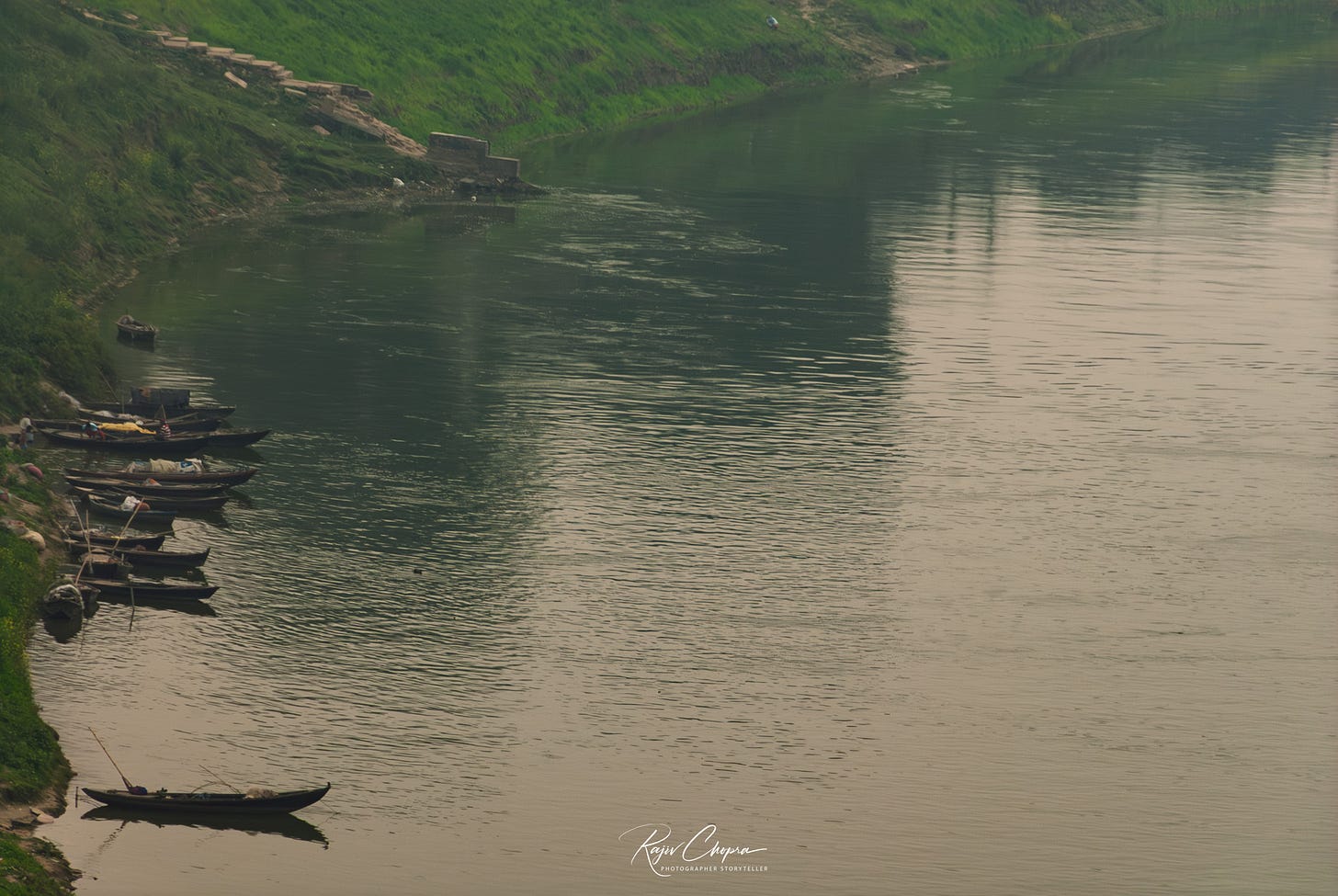When Time, And The British Graves, Froze In Chunar Village.
I did not know the British graves littered the area.
Recalling my previous posts about Chunar.
I wrote about my wandering in Chunar Fort in my last post, and the entertaining discussions I had with the young lad. He must have failed history exams, but was a brilliant storyteller. If you want a brief but authentic summary of Chunar Fort’s history, read this post.
While driving up to the fort, I noticed the village at the foot of the hill and determined to wander around in the precincts before leaving for Mughalsarai. I was conscious of the need for speed – time was precious – yet decided the village was interesting enough to warrant a half-hour walk.
The village was interesting, the graves even more so.
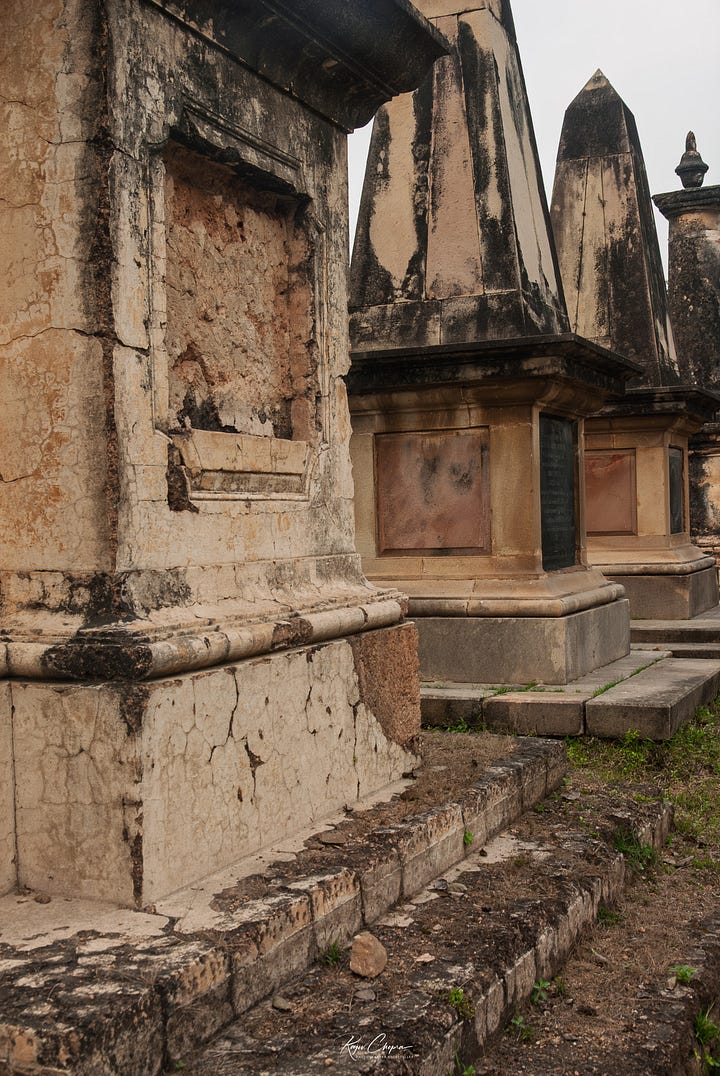
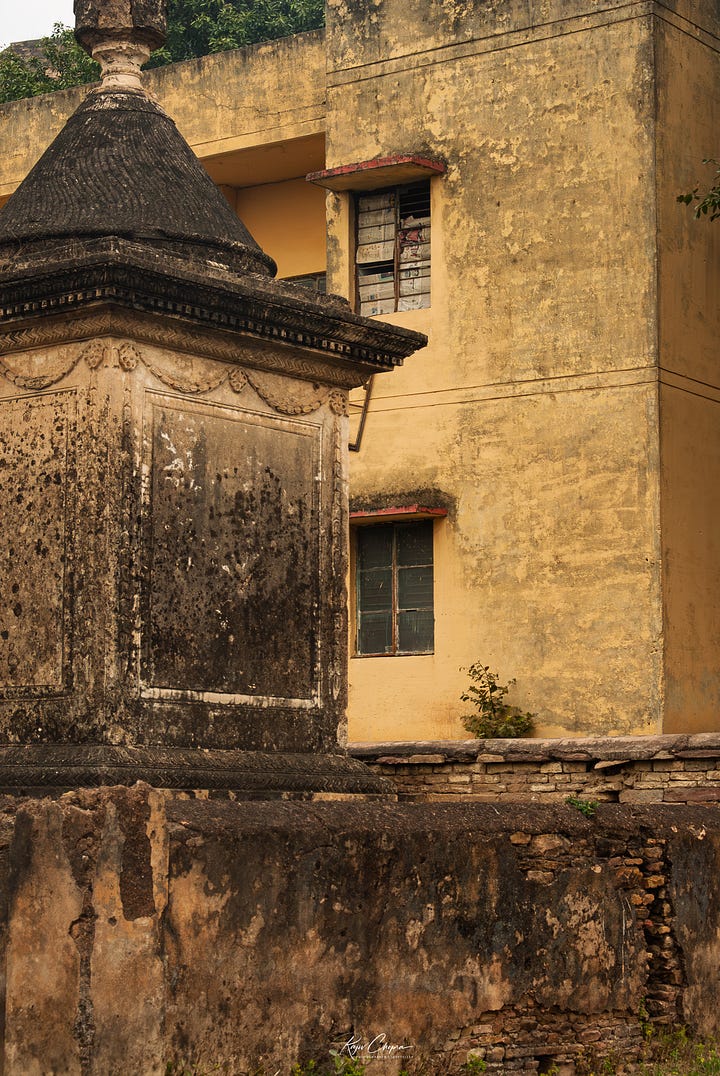
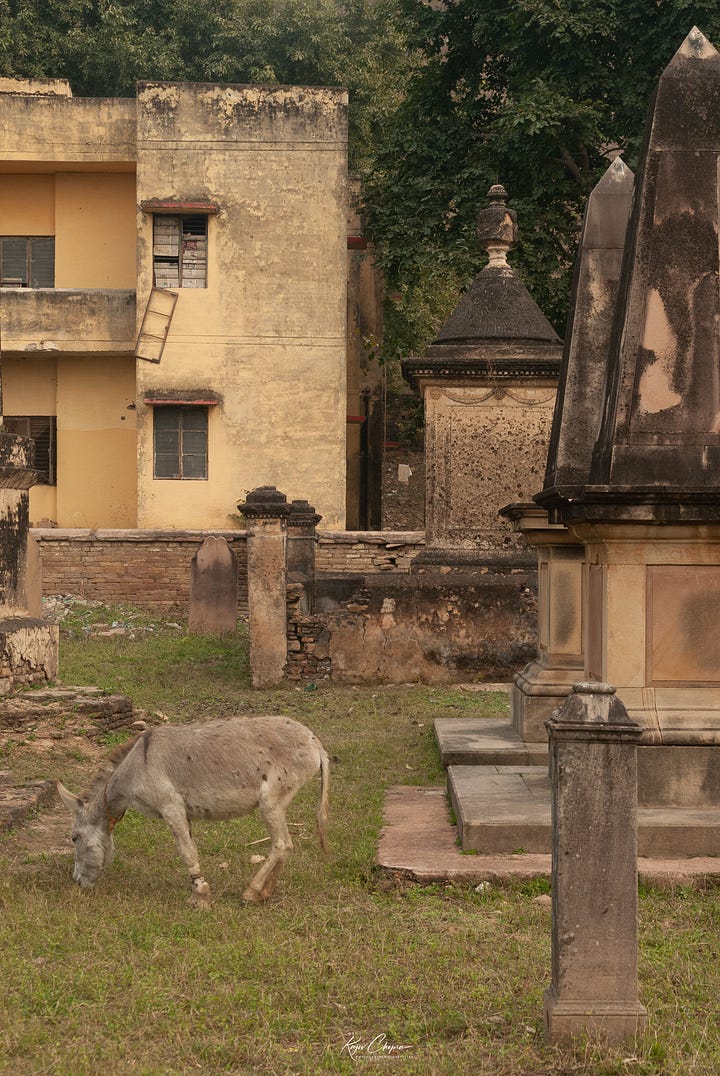
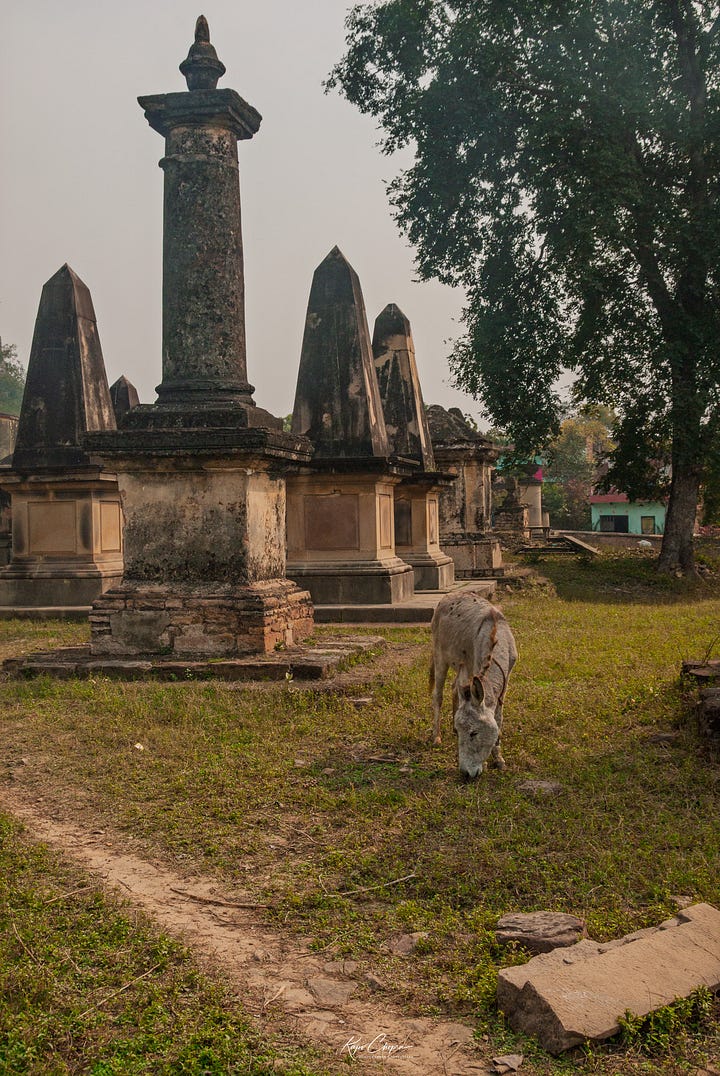
The villagers I saw wore shirts and trousers, a possible tribute to our modern style of clothing and fashion. Apart from their clothes and other modern accessories like motorcycles and mobile phones, I doubt many have progressed since medieval times. If my young lad’s sense of history was inadequate, I imagine the men I saw had no sense of history. I doubt they had the slightest inkling of the battles that kings and generals waged over the centuries.
Many lack a sense of history.
We often visit towns that have witnessed dramatic events over the centuries. Blood, destruction, and revival define Delhi’s history. Most old battles were about money and survival – there are few legends in Indian history where a king waged battle for a decade because of a woman. No Helens for us. No Troys for us. Yet, people have razed Delhi, pillaged the city, and it has risen again. Delhi’s modern war is an underground war, where people don’t even know they must fight for the right to breathe clean air, or to retain Delhi’s disappearing culture.
Still, there are people in Delhi who have a keen sense of history. I doubt the people I saw in the village had the faintest idea of the old battles, where Humayun besieged the fort, possibly making a strategic error. I also doubt they even think of the British who lived and died in Chunar after the fort passed into British hands.
Time rules many of us.
Time rules people who inhabit the corporate world. Deadlines scream at you, and bosses walk around, tapping watches, mentally repeating the mantra – ‘we must not miss the deadline.’
In the village, time stood still, and you must forgive the use of that clichéd phrase – ‘time stood still.’ Neither did the villages fear ghosts.
The village itself was nothing out of the ordinary – a sleepy hamlet that you will encounter anywhere in India. A few motorcycles parked themselves next to the walls of the small brick houses, a few clothes fluttered idly on clothes lines, and steel buckets lined up at the water pump, waiting their turn. I did not see a soul in the village.
The graveyard and the sleeping men fascinated me.
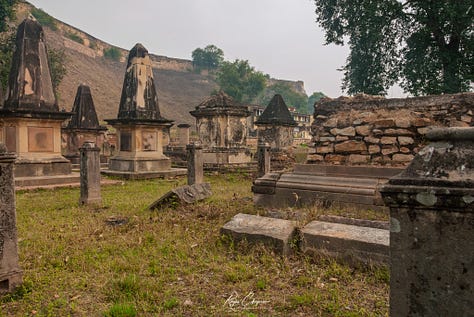
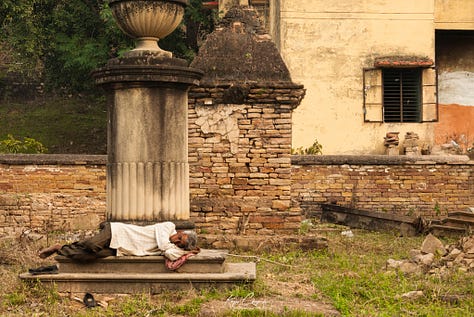
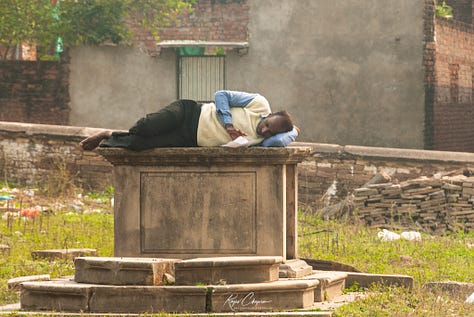
The graveyard was more fascinating, with grand gravestones covering the dust of the Britishers who died in the fort or in the village. Did the town produce a few ‘Anglo Indians,’ products of sexual encounters between the Brits and Indians? Calcutta used to have many ‘Anglos,’ as we call them, people stuck between India and England. I remember meeting an old Anglo lady once in Calcutta, pining for her home in England, even though she had never left India. She was an exception, I admit – most Anglos are proper Indians and resent the ‘Anglo’ tag. I believe many migrated to Australia, halfway between India and England.
Time refused to move.
An ass chewed on the grass in the graveyard. Its owner had tied its fore and hind legs together, ensuring its captivity and docility. Two men slept on the gravestones – they seemed to form a comfortable bed in the February afternoon sunshine.
Everything was still – the ass chewing grass, the air, the snoring men – everything. Events seemed to have passed them by, and they seemed indifferent to the possibility of ghosts protesting at the men disturbing the sleep of the dead. I wager a bet that the villagers and the ghosts came to terms many decades back, and coexist peacefully, a far cry from the strife between the British and the ‘Indians’ who lived in the subcontinent over a century back.
Should we pity or envy these people who slept on the graves that February afternoon? They may be oblivious to the grand march of history, to the sweep of technology, or machine intelligence. These people may not be privy to deep, solemn boardroom discussions, eat at the fanciest restaurants in town, or enjoy holidays in exotic locations. Still, they possibly own something we don’t.
Masters of Time.
Maybe they are masters of their time, whereas time is our master (or mistress). I surmise they know how to enjoy a relaxed afternoon in the sun, even as they worry about medical bills, like we do. We wouldn’t dare to sleep on gravestones, conjuring up all sorts of prohibitions, myths, and social walls.
Do we envy them or not? I, for one, don’t want to live their lives, and I bet they don’t want to live mine. Where does the truth lie – in the spaces between their lives and ours? What do you think?
As I left the graveyard and said goodbye to the sleeping men and ghosts, I turned to bid farewell to the wizened old man who stood guard at the gate. He allowed me to photograph him, and then we smiled and carried on our separate paths in life.


